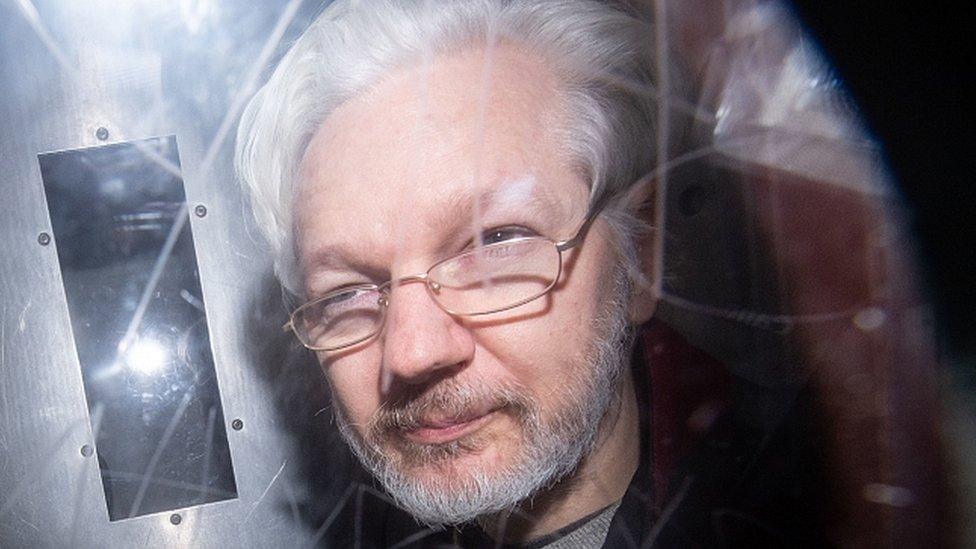Julian Assange: Why Ecuador ended his stay in London embassy
- Published
Who is Julian Assange?
For seven years, Julian Assange took refuge in a small office that was converted into a bedroom in Ecuador's embassy in an upmarket neighbourhood of central London, where he lived with his cat, James.
It had a bed, sun lamp, computer, kitchenette, shower and treadmill.
During his time there, the 47-year-old Wikileaks co-founder welcomed guests including Lady Gaga and Pamela Anderson and, from a tiny balcony, addressed supporters and held news conferences.
But, apparently, not everyone was happy. Relations between him and Ecuador's government worsened after President Lenín Moreno took office in 2017. This became evident last year when Assange was given a set of house rules, including paying for internet use, food and laundry, taking better care of his cat and keeping the bathroom clean.
That fuelled speculation that Ecuador had finally had enough.
On Thursday, President Moreno said Ecuador's patience had "reached its limit", external with Assange's "discourteous and aggressive behaviour". Accusing him of "repeated violations to international conventions and daily-life protocols", he announced on Twitter the abrupt end of Assange's diplomatic asylum.
From skateboarding to insulting staff
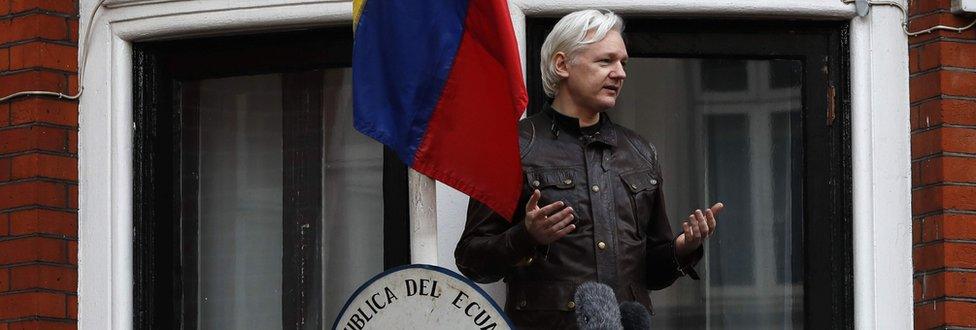
More details emerged later, when Foreign Minister José Valencia told Congress that Assange had been using a mobile phone not registered with the embassy, repeatedly insulted the mission's workers - reportedly calling them US spies - and damaged the facilities by riding his skateboard and playing football, despite being told not to do so.
Cleaning staff, Mr Valencia said, had described "improper hygienic conduct" throughout Assange's stay, an issue that a lawyer had attributed to "stomach problems". One unnamed senior Ecuadorean official told AP news agency that other issues included "weeks without a shower" and a "dental problem born of poor hygiene".
Interior Minister María Paula Romo then complained that Assange had been allowed to do things like "put faeces on the walls of the embassy and other behaviours of that nature".
Vaughan Smith, a friend who visited Assange last week, told Reuters that he rejected this claim. "Julian has been under stress but seemed in a balanced frame of mind every time I have seen him. It doesn't seem in character."
Mr Valencia added that the decision was taken to prevent a further deterioration of Assange's health, without giving details. Quoting an unnamed friend, the New York Times said Assange had become deeply depressed, external and that diplomats - many of them recently appointed by the Moreno administration - were tired of his behaviour.
Spying suspicions
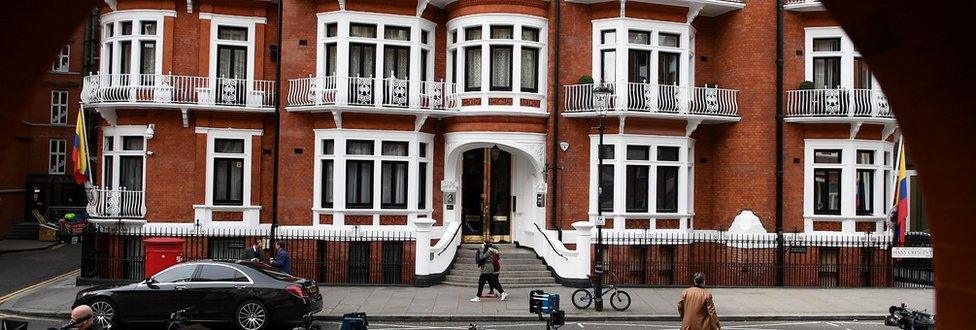
President Moreno, who ordered Assange to cut back his online activity soon after taking office, also said Assange had "violated the norm of not intervening in the internal affairs of other states", most recently in January 2019 when Wikileaks released documents from the Vatican.
He said that, and other cases, confirmed suspicions that Assange was still linked to Wikileaks. The president also accused Assange of having installed forbidden "electronic and distortion equipment" and of accessing the embassy's security files.
There was also the suspicion that Wikileaks was linked to an anonymous website that said the president's brother had created an offshore company, and leaked material included private pictures of President Moreno and his family. Mr Moreno denies any wrongdoing.
Mr Valencia added that, in January, Assange told Ecuador's ambassador he had installed panic buttons that he would activate if he considered his life to be in danger.
It was not clear what he meant by that but British authorities who arrested him on Thursday were careful to prevent Assange from returning to his room during the operation, according to AP.
The whistle-blower also allegedly played loud music - in at least one occasion this reportedly happened during office hours, disturbing staff who were working - and deliberately blocked the embassy's security cameras.
Assange's stay at the embassy cost Ecuador some $6.5m (£5m) from 2012 to 2018, Mr Valencia said. Assange's Ecuadorean citizenship was also suspended.
Why did Assange end up at the embassy?
The Australian national had been in the Ecuadorean embassy since 2012, after seeking asylum there to avoid extradition to Sweden on a rape allegation, which he has always denied. He was given protection by then President Rafael Correa, a strong advocate of Wikileaks.
What about his cat?
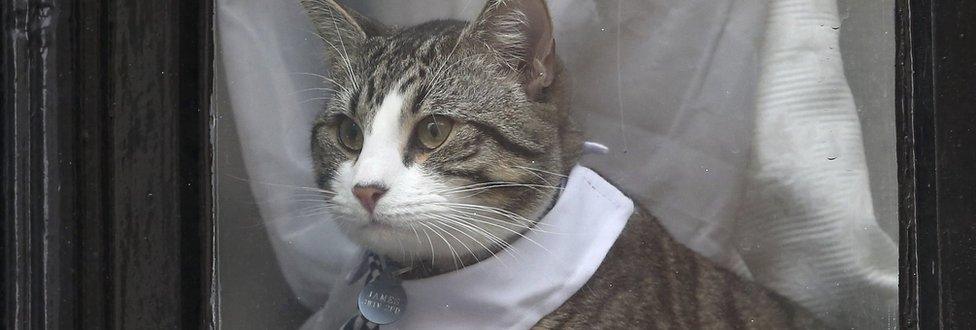
It is unclear what has happened to James. His own Instagram account has not offered any clues,, external with the last picture posted in 2017.
Reports suggest he was given to a shelter by the Ecuadorean embassy some time ago while Italian newspaper La Repubblica said last year Assange had himself freed him., external
- Published12 April 2019
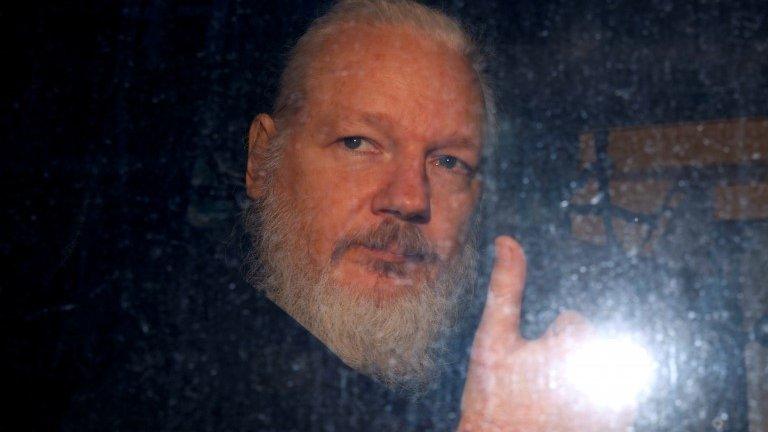
- Published25 June 2024
